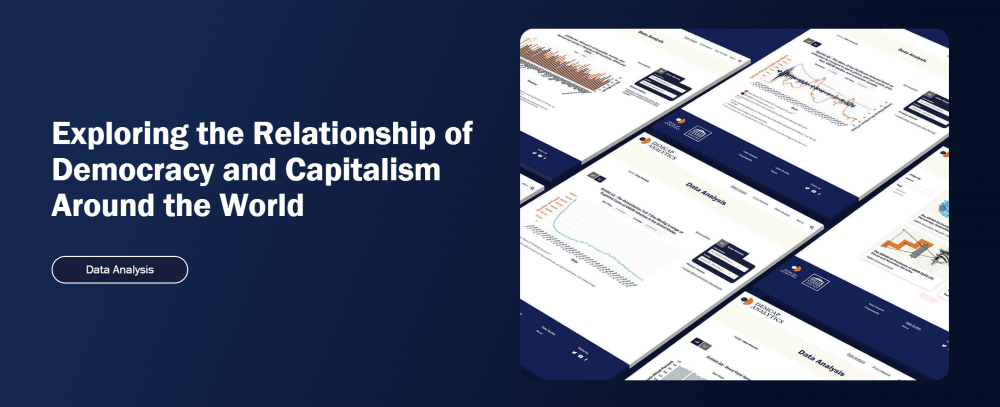Pedagogy
Addressing public misunderstandings of what democracy and capitalism are, how they function, and why they shape societies
Well-functioning democracies rely on the reasoned participation of a mass of citizens to represent the public will. Likewise, capitalist systems that steadily increase standards of living require well-crafted incentives and entrepreneurial vigor across demographic groups. Unfortunately, a large percentage of the public struggle to understand what democracy and capitalism are and how they function.
The Project on Democracy and Capitalism provides resources to students and instructors at all educational levels that help them define these concepts, understand their dynamics, and determine how to improve them over time. To accomplish this mission, the Project on Democracy and Capitalism has created DemCap Analytics:

DemCap Analytics is an interactive, web-based platform and suite of educational resources designed to engage users in data-driven analysis of issues at the intersection of democracy and capitalism.

DemCap Analytics is designed to fill a gap in accessible, accurate information related to two of the world's most important institutions: democracy and capitalism.
Users can access 400+ datasets related to democracy, capitalism, and the intersection of the two. Multiple data visualization options offer comparisons between countries and over time.
Classroom-ready case studies offer instructors high quality content easily incorporated into courses for high school, undergraduate, and graduate level students. Topics range from "What is Capitalism?" to "How does market concentration affect societal wellbeing?" and "Are green parties more common in high income democracies?"
A curated encyclopedia defines relevant terms, making the data and tools available in DemCap Analytics accessible to students in any field of study.
Please reach out to the Project on Democracy and Capitalism with any questions or feedback regarding DemCap Analytics using this form.